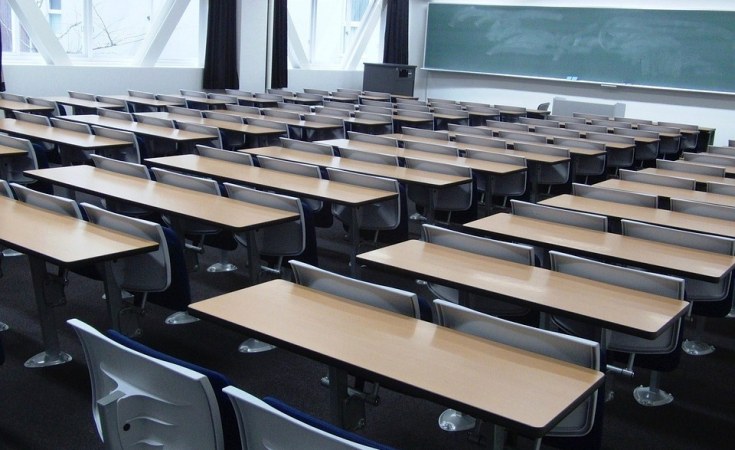Kidnappings and School Closures: What the Nigerian Govt Must Do

In the past year in Nigeria, more than 600 schools have been closed and 1,000 children kidnapped, according to Global Citizen. UNICEF states that 2.8 million children in the northeast are in dire need of help as a result of the violence in the region. VOA News adds that the northeast accounts for 70 per cent of Nigeria’s school dropouts.
What happens to children in developing countries when their schools are shut? Do they ever return? When Nigeria’s data of children unlikely to return to school is compared to countries with similar challenges, it paints a dire picture.
Despite various initiatives and declarations, there has been an overwhelming assault on schools, particularly in Sokoto, Kebbi, Zamfara, Katsina, Kaduna and Niger states.
Some recent attacks on schools
In December 2020, about 300 schoolboys were kidnapped from the Government Science Secondary School, Kankara, Katsina State.
In February 2021, 27 schoolboys were kidnapped from the Government Science Secondary School in Kagara, Niger State.
Also in February 2021, about 300 schoolgirls were kidnapped from the Government Girls Secondary School in Jangebe, Zamfara State.
As the kidnappings continue, the perpetrators have also become richer. More than $18 million was paid for the release of kidnapped victims between 2010 and 2020, mostly from relatively poor families.
The children of Nigeria are the future of Nigeria. Yet, they are being physically and emotionally traumatised, kidnapped, sexually assaulted, forcibly married, and sometimes killed to such an extent that, unless up to 300 students are kidnapped, no one notices any longer.
Why target schools and children?
Some of the answers are obvious, while others are not. Consider the following:
· It is emotionally disturbing to imagine children being in the hands of killers and kidnappers, and these killers and kidnappers know exactly how to use these children to negotiate for the release of their comrades or for a sure ransom.
· Attention from the international community will give the kidnappers recognition and popularity amongst their peers simply for abducting hundreds of children.
· Kidnapped children can be used as suicide bombers, as child soldiers, spies, human shields, and as domestic workers.
· There is money to be made from kidnapping.
· The “western education is bad” ideology rings true when children are kidnapped from schools.
· The kidnapped girl-child can be used as wives, and as sex slaves.
· Children do not fight back.
While Boko Haram has been the most obvious culprit, communal militias, bandits, and unknown gunmen have superseded Boko Harm as the most vicious threat to education, children, the economy, and to Nigeria as a country.
And what has been the government’s response? The government has signed a declaration, the SSD.
The “Safe School Declaration” (SSD) is a political commitment to protect education during armed conflict. This declaration has been endorsed by 108 States, well over half of all UN members. A conference was recently held on October 27, in Abuja, in a country experiencing just such attacks on education. The conference provided an opportunity to galvanize support for, and accelerate the implementation of the SSD by bringing together member states, practitioners, and civil society to share good practices and strengthen cooperation to save lives and safeguard the right to education for all (OCHA).
Good words, of course. But on the whole, the government of Nigeria’s response has been half-hearted. The easiest posture to adopt in the face of threats is the “close the school” posture. Instead of closing the schools, why not “protect” the schools?
About a week ago, the International Criminal Court (ICC) expressed its intention to open an investigation into the rising cases of kidnapping of school children in Nigeria.
The ICC will also investigate the incessant closure of schools, and the inability of the authorities to put an end to the kidnappings.
Protecting schools require time, effort, and money, something that very few are willing to invest. Instead, what we see are schools without walls or fences, without gates, without CCTV cameras, and without proper security. What we see are security guards who are poorly trained or not trained at all, who are inadequately kitted, who are without boots, proper uniform or gadgets, or who can barely communicate. Teachers are now substituting as security guards.
Instead of closing the schools, why not protect the schools? Is it too much for a fence? Adequate security? Is it too much to chase the drug sellers and smokers away? The drunks? The prostitutes?
The use of technology has become standardized globally. Using CCTV cameras, drones, movement and sound detectors etc., have all become an integral part of school security all over the world. Let us adopt a “Western Education is Necessary” (WEN) philosophy, used in the Western world, not just for Maths, English, Physics and Chemistry, but also for the best practices used in protecting Nigeria’s children from harm.
Dr Lionel von Frederick Rawlins is the Assistant Vice President of Safety and Security Operations at the American University of Nigeria (AUN), and a United States Marine. Read his bio here.
By Premium Times.



